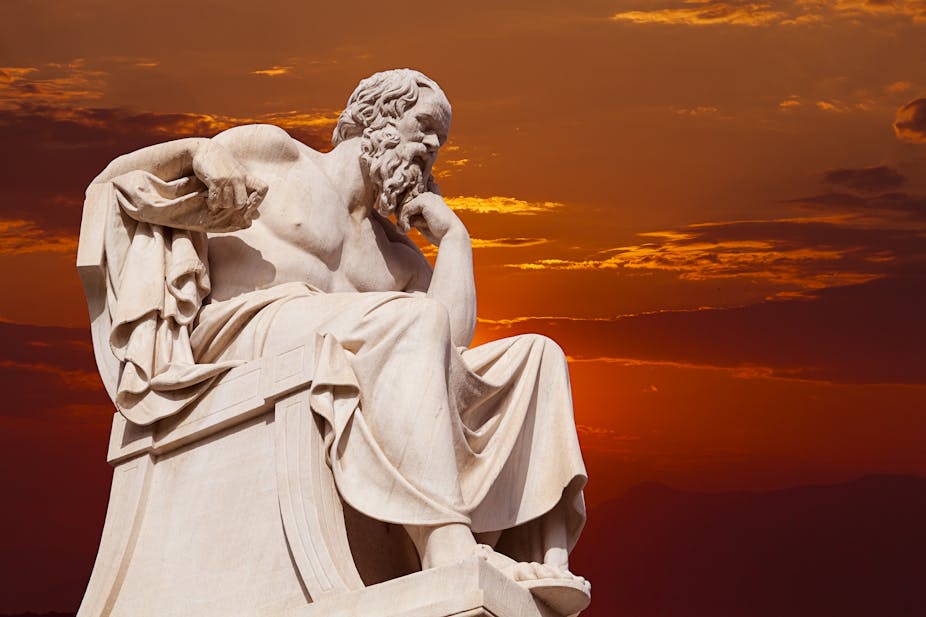More and more, educational leaders and managers in schools and universities are being confronted with various expressions of hate speech.
In Cape Town, South Africa, a group of high school boys compiled a song which included the lyrics: “I feel pain unearthly because of my hatred of kaffirs”. The word “kaffir” is an apartheid-era racial slur and possibly the most offensive word in the South African lexicon. At the University of Witwatersrand, also in South Africa, the phrase “Kill a Jew” was spray-painted on one of its main buildings.
Similarly, in the US, racist flyers were found posted on the campus of Weber State University in Utah. The flyers were recruiting students to the white supremacist Alt-Right movement and declared that “diversity is a code word for White genocide”.
In May this year Stellenbosch University in South Africa became another example. Three students put up Nazi-inspired posters on campus advertising an “Anglo-Afrikaner student” event under the motto “Fight for Stellenbosch”.
The incident caused a massive outcry and the university acted immediately and decisively to condemn the inflammatory hate speech. The students were found guilty of contravening the Student Disciplinary Code, which states that
A student shall not act in a manner that is racist, unfairly discriminatory, violent, grossly insulting, abusive or intimidating against any other person.
Incidents like these bring to the fore the question of how institutions of learning can and should be responding to such controversies, which lay bare our simmering intolerance of difference and “otherness”.
In our latest book, Tolerance and Dissent within Education: On cultivating Debate and Understanding, we look at how the concept of tolerance might be understood, cultivated and enacted in and through education.
One of the arguments we make is that schools and universities should deliberately widen the exposure of students and learners to a diversity of people and views. This will develop their capacities as democratic citizens and enhance the human quest for flourishing in everyday social life.
What is tolerance?
Andrew Murphy, a scholar from Rutgers University, describes tolerance as
the self-restraint of not restricting or reducing the rights or autonomy of others, or other ways of being and acting.
But in a global context of heightened bigotry, some people see an appeal to tolerance as a defence of hate speech or racism. This is not what tolerance is. All views and actions should only be tolerated to the extent that they don’t harm others – physically, psychologically or emotionally.
According to the classical Greek philosopher Socrates, tolerance is about the pursuit of truth. It is about being prepared to see the value of another person’s perspective or truth. This necessarily means humbling oneself and acknowledging one’s own limitations and fallibility. Tolerance, then, is fundamentally about equality; about recognising the capacity for both moral truth and error in ourselves and others.
Amy Gutmann from the University of Pennsylvania describes tolerance as
agreeing to disagree about beliefs and practices that are a matter of basic liberty.
This, she argues, is a way to ensure larger civic participation of people, who are recognised as equals by their fellow citizens.
Simply put, tolerance is the choice to “agree to disagree” because we respect each other as moral and civic equals.
Difference, democracy and human flourishing
Whenever diverse communities of people come together there is the potential for peaceful coexistence as well as for conflict. If we were to all agree on what to think or how to act the need for tolerance would disappear. But we don’t. So exercising tolerance is an acknowledgement of difference and disagreement – and, at the same time, a decision to co-exist despite these differences, rather than destroy them or each other.
This is fundamental to democracy, which is about equality and the right of people to believe what they believe. Agreement or consensus may be a desired end –- if only to resolve conflict – but it is not a democratic imperative. Tolerance is the tool that helps us democratically manage the dynamics of any plural community or society.
But the value of tolerance goes beyond that. In protecting and cultivating diversity, tolerance also creates the conditions for human flourishing. Disagreement and dissent can be seen as processes of “mutual incitement”. When people disagree, they are in fact inciting each other to think anew and differently about established ideas or beliefs. It is through disagreement that we dislodge ourselves from rigid ways of thinking and being – and refine our ideas and positions.
The responsibilities of schools and universities
Schools and universities must make sure that students and learners are exposed to multiple perspectives and ways of doing things. They have to encounter different viewpoints and arguments, and especially those that disrupt their own ways of thinking and their ideas of the world.
It is important that the teacher’s worldview isn’t the only one propagated in the classroom. This means teaching in a way such that pupils or students are invited to bring their own identities and equal intelligence into the conversation. They must be encouraged to engage in deliberation and debate, with mutual respect.
Critical to any educative endeavour is an understanding that there is always the possibility of another perspective and, hence, disagreement. If educational institutions can protect learners from hate speech, whilst also successfully teaching them this this, they will prepare them to become both better democratic citizens and richer people.

